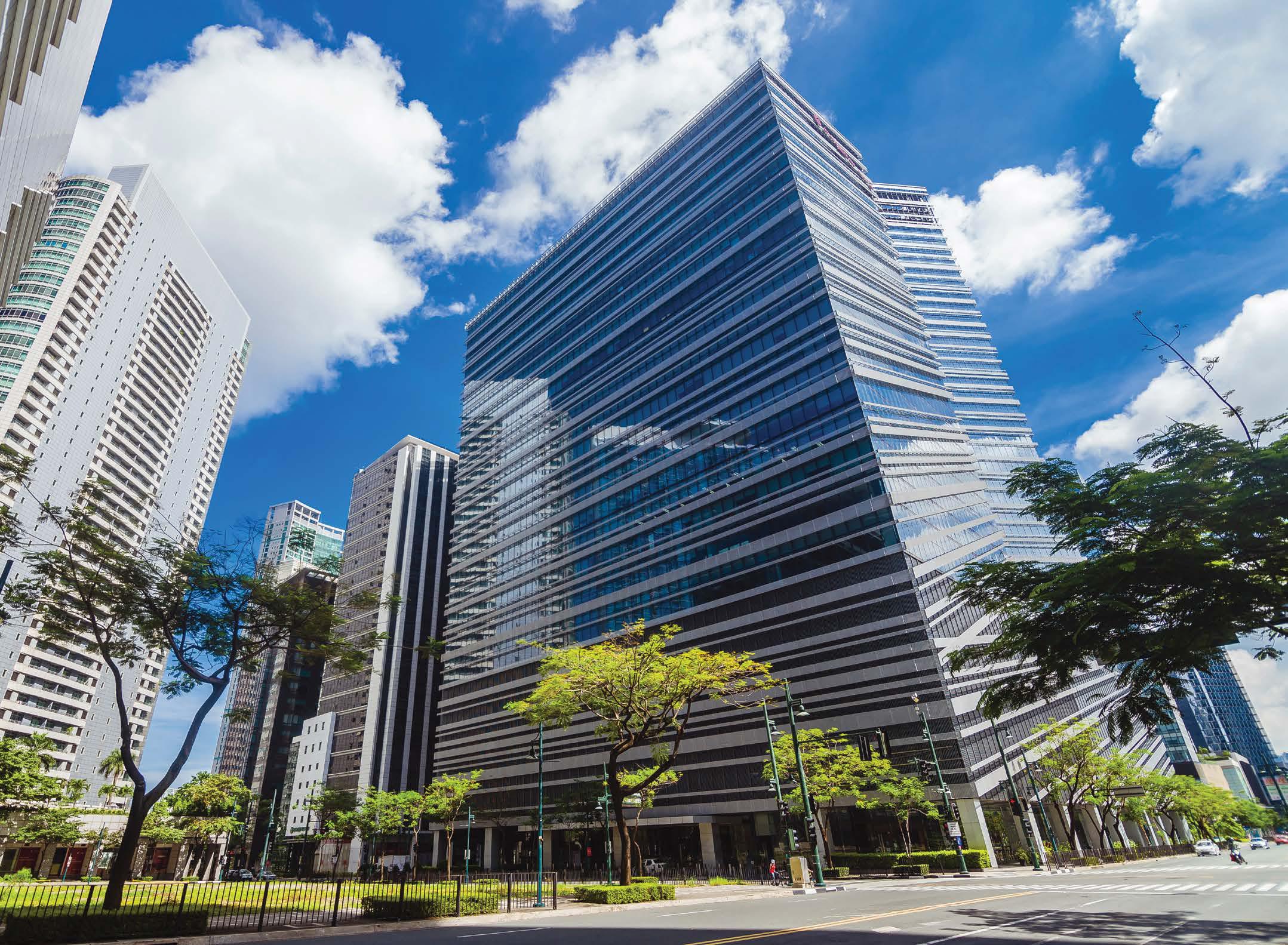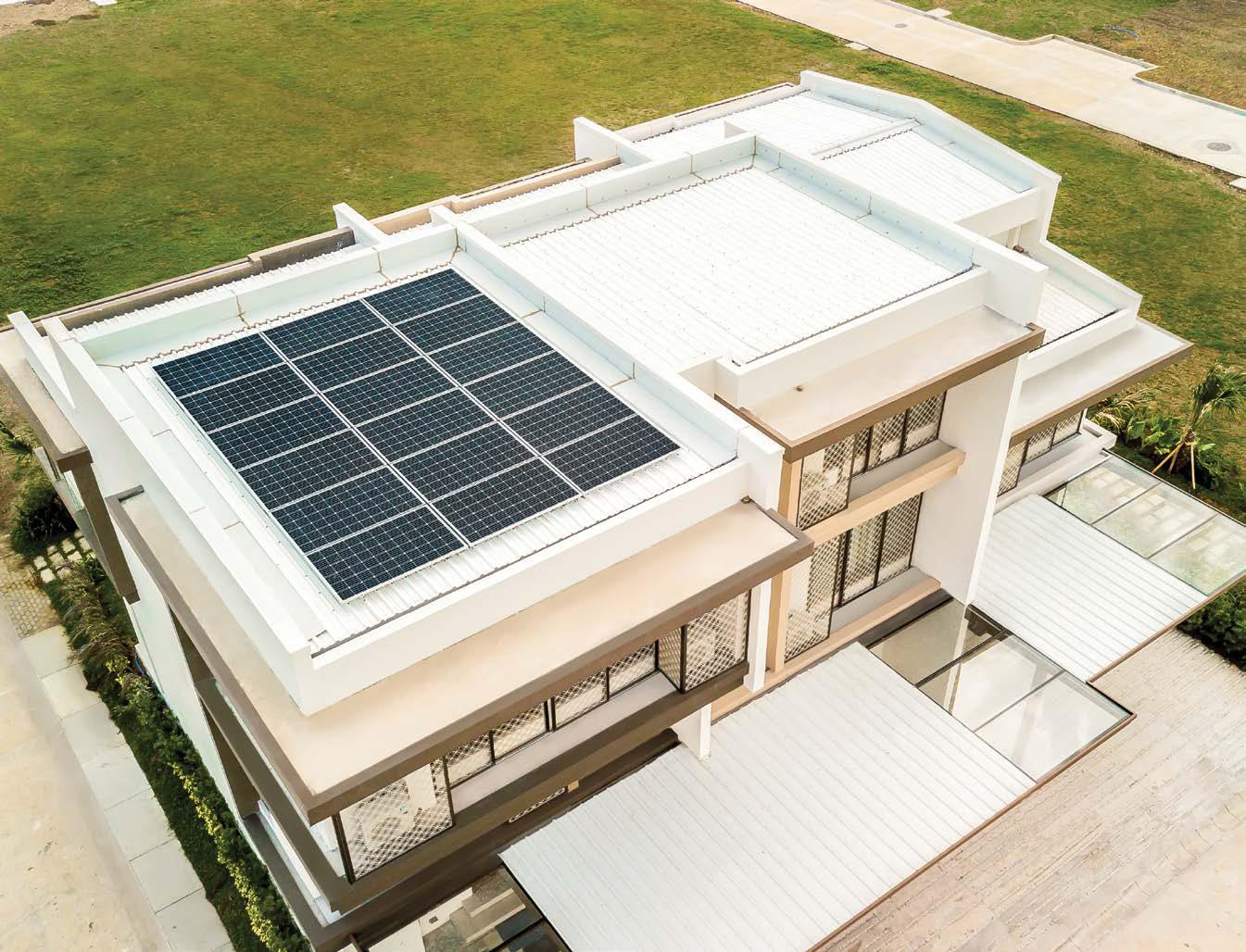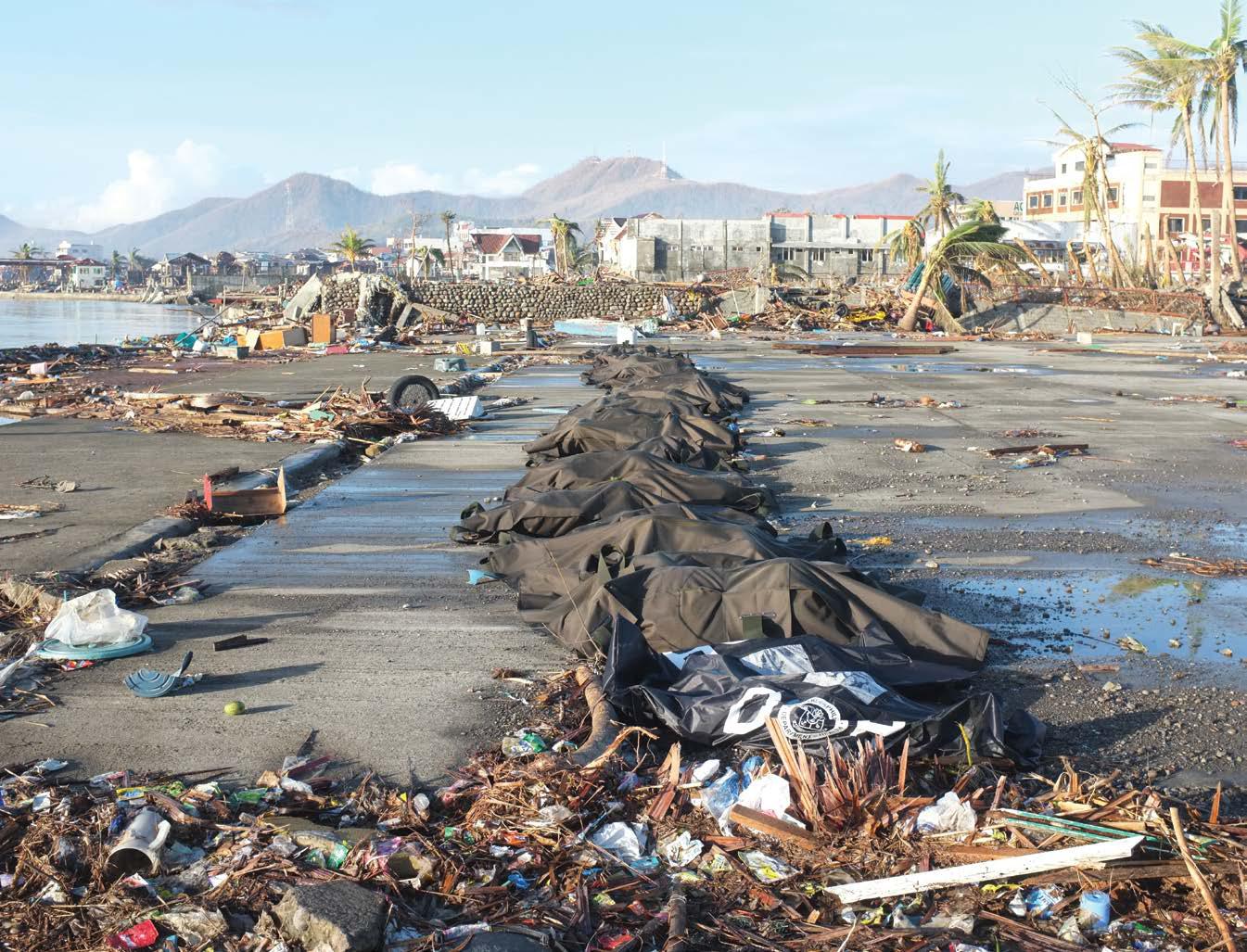Meet the Filipina leader who will help shape the country’s urban landscapes
Picking up the baton passed by her father, Jean de Castro is steering engineering firm ESCA through stormy waters in the Philippines

The arc of Jean de Castro’s career might look at first glance like a winding road, but actually, it is one that just went full circle. Now the chief executive officer of ESCA, a full-service engineering firm based in the Philippines, de Castro followed an unconventional path to the executive suite of a leading real estate company.
In her early professional life, de Castro was a successful litigation lawyer who was on partner track at a major Philippines law firm. Along the way, she landed a role as a business news anchor on Bloomberg TV. Then she decided around 10 years ago to return to her roots, in a sense, when she joined the company that her father, Ernesto de Castro, founded in 1982.
The younger de Castro had received an introduction to engineering and construction while working on an arbitration case for the law firm—a case that she says piqued her interest in real estate for the first time. When her father later asked her to join his company, saying he needed someone he could trust during a transition period, she felt it was an opportunity worth pivoting for.
“I had never considered this career path before that day, considering that I was not an engineer. But I also knew I could not turn down the chance to help out our family business,” de Castro says.
When she started working in the company’s HR and finance departments, it was “a strange shift from being a lawyer bringing in the revenue to taking on a more supporting role,” she says.
The move to ESCA also ultimately meant walking away from her role under the bright lights on Bloomberg TV. While working as a lawyer, de Castro had appeared one day on a local debate show that was sponsored by her firm, and a TV executive who saw her performance was so impressed that she invited de Castro to audition for a position on-air.
I had never considered this career path before that day, considering that i was not an engineer. But I also knew i could not turn down the chance to help out our family business
De Castro was a news anchor on the show First Up and says she learned a great deal talking to business leaders from across the Philippines. Throughout that period, she would wake in the middle of the night to be in the studio by 3am, do the show from 7am to 8am and be at her office by 8:30am.

“When I took on a bigger role as CEO that’s when I said I had to put my full focus on the company,” de Castro adds.
As CEO of ESCA, de Castro leads operations, business development and administration duties. She is currently a member of the highly acclaimed PropertyGuru Philippines Property Awards judging panel. Last June 2020, she was also appointed the first-ever female chair of the Urban Land Institute (ULI) Philippines. ULI is one of the world’s oldest and largest networks of cross-disciplinary real estate and land use experts.
You’re the first female chair of ULI Philippines. How are opportunities for women changing in the real estate industry? What are the challenges?
It is exciting to be the first chairwoman of ULI Philippines—and at the same time, it was challenging to start the role at the height of the crisis last June. There are growing ranks of female executives across Asia, particularly in real estate. One of the reasons I look forward to PropertyGuru’s annual awards night is to check in with the many accomplished and rising female executives in our industry.
All that said, we still face challenges. What I’ve personally noticed is that while entry into the industry is growing, a bigger challenge is keeping women employed long term and helping them move up the ranks. I’ve had the privilege of working with women engineers in my company who left after four or five years to take care of their children.
There is a need to focus on how to keep more women in the workforce long term—whether through flexibility or sharing of family responsibilities. Also important is allowing women to return to the workforce (after they leave to take care of their families) without having to start at the bottom again.
Many are looking to the real estate industry to help drive economic recovery post-Covid. How can organisations like ULI help to encourage real estate investment during this period?
One is to highlight opportunities. Having been in media, I know it is always easier to grab attention with negative news or negative outlooks. However, there are always bright spots. Interestingly, there are funds available waiting to be deployed, whether here or abroad.
Second, for me, it is important to highlight our role in working for the common good, even at the expense of a little bottomline. Investing in social value to aid recovery would be crucial at this point. If we all wait on the sidelines for the best deal, it will take longer for the sea to lift all boats.
We must redefine how we measure risk, value and performance. It is also time to redefine what is acceptable shareholder value under these circumstances—and what defines a “good deal.” The more we help surrounding interests, the faster shareholder value can rise to pre-pandemic times and the faster the economy can restart.

How is the pandemic impacting ESCA’s business?
This is the first crisis I’ve had to lead the company through. My father founded the business in 1982 and since then we have survived and thrived through crisis after crisis—the dollar crisis, oil crisis, the EDSA Revolution. He built a truly resilient company.
Like many in this industry, the pandemic hit us hard. Projects came to a standstill. Job orders were frozen. We had to defer and even rethink our plans for moving to a bigger and more modern office. But we are cognisant that many businesses have suffered far more.
I always tell my team that the pandemic didn’t create new vulnerabilities in our company. It just exposed old ones. We have undertaken a healthy and cathartic process to re-examine many aspects of how we do business.
How do you envision real estate development changing in the Philippines in the coming years?
Real estate has been central to the Philippines’ development. But here’s the challenge it now faces; much of the Philippines’ built environment has been built without proper planning, sanitation and infrastructure.
The Philippines is among the very few countries that unfortunately are hit with a perfect storm of natural and man-made challenges almost every year: typhoons, earthquakes and rising sea levels. Now layer in the economic, social and other related challenges of a pandemic.
I’m convinced now that we need to ask ourselves if the bottomline is the only line. We know it’s not. That’s why I’m glad that ESG (environmental, social and governance) issues have started to receive more focus in the minds of investors and developers. More developers are also embracing sustainability.

What are some unique opportunities in sustainable development?
As more developments embrace sustainability, I’d like to see more “green” features in inclusive developments—not just in high-rise, luxury projects. I think it could extend to more affordable housing. The pandemic has further aggravated the gap between rich and poor—and so we need to ensure that any progress we make is inclusive. One company in the Philippines is putting solar panels on affordable housing, allowing consumers to save on electricity costs.
What is one interesting project on the horizon for ESCA in the coming year?
We are the project manager for the City of Manila’s Hall of Justice, which will house a total of 120 courtrooms and three special courtrooms. It is an interesting project for a couple of reasons. First, it will be the first green-certified courthouse in the Philippines. Second, it is within an archaeological complex. It is composed of three interconnected buildings, including the old GSIS Building, which will be preserved, and the new building that will be built around it.
The original version of this article appeared in Issue No. 165 of PropertyGuru Property Report Magazine
Recommended
Why everyone is moving to Selangor and Johor: Malaysia’s real estate comeback
Malaysia’s upturn in fortunes is especially prevalent in secondary destinations such as Selangor and Johor
Penang’s silicon boom: How the US-China tech war is supercharging local real estate
Penang’s booming semiconductor industry has created ripples within the local real estate sector
New leader, new opportunities: How Hun Manet is shaking up Cambodia’s real estate game
Hun Manet is overseeing decent economic growth and widening access to the country’s real estate market for foreigners
Singapore embraces inclusive housing reforms amid resilient demand
The Lion City’s regulatory strength continues to exert appeal for international investors








